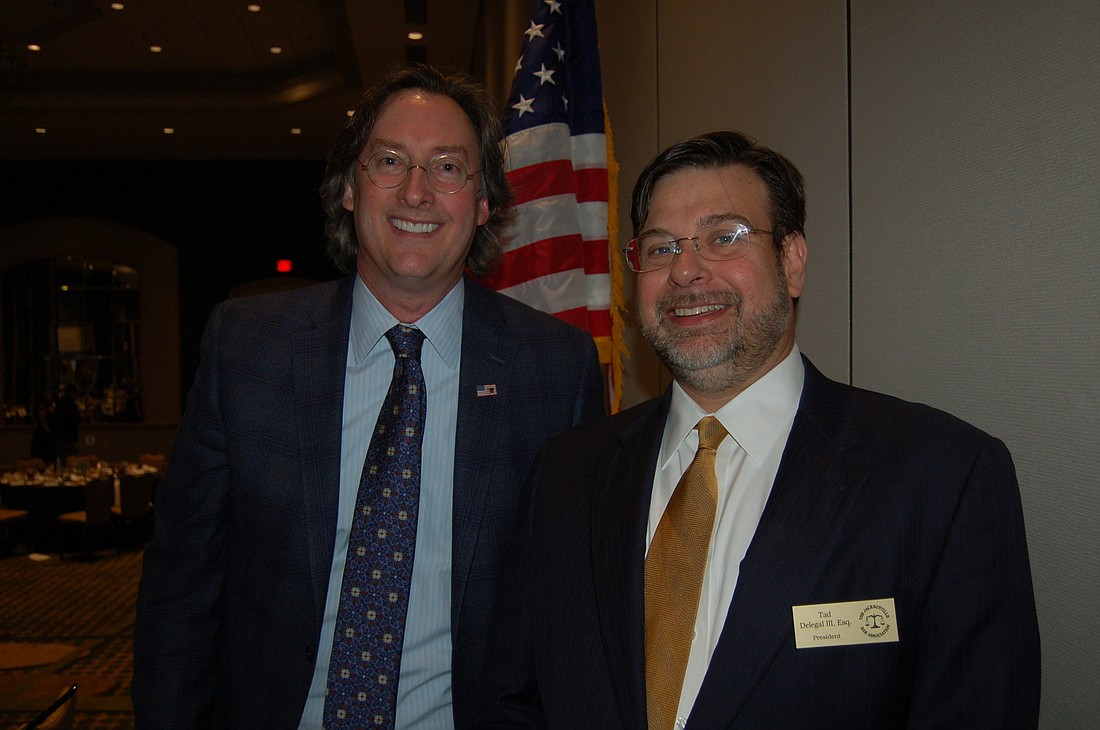
Attorneys can work anywhere, any time, storing and accessing legal and other documents via the internet, but they also must know the risks that come with the ease of doing so.
Mark Lanterman, chief technology officer at Minneapolis-based Computer Forensic Services LLC, offered insight and advice about electronic evidence and its value in the areas of litigation and criminal investigation Thursday to members of The Jacksonville Bar Association.
Lanterman’s company was established in 1998 and, in addition to Minneapolis, has offices in Los Angeles, Denver and, as of three weeks ago, Jacksonville.
The company offers services related to discovery, litigation and information security as well as electronic evidence processing and evaluation for law enforcement agencies.
Lanterman said with the legal system’s transition from paper to digital, such as maintaining case-related data on computers and servers in law firms and e-filing documents with the courts, it’s natural for attorneys to embrace the technology.
“It’s quicker and because it’s quicker, it’s less expensive,” he said.
Even more important, they must understand how it could affect their practice, said Lanterman, a former member of the U.S. Secret Service Electronic Crimes Task Force and a faculty member at the Federal Judicial Center in Washington, D.C.
While many attorneys store their data in the internet “cloud” for ease of access, that doesn’t come without ]risk, he said.
Lanterman said some cloud service providers assume ownership of data and that could lead to an ethics issues, particularly with information covered by attorney-client privilege.
“You are attorneys. Read the terms and conditions,” he said.
The latest trend among hackers is to target attorneys who practice in states where court documents are filed electronically — including Florida.
Lanterman said an email is sent, purportedly by the clerk of court, notifying an attorney that their recent e-filing is incomplete and that if it is not completed by a certain time, the judge will dismiss the case with prejudice.
The email instructs the recipient to “click here” to solve the problem, but what the link does is give the hacker access to the attorney’s data.
“We are the weakest link,” Lanterman said.
Look carefully at emails and “slow down before you click,” he added.
Computer Forensic Services leased a small suite on the 25th floor at Bank of America Tower.
Lanterman said he’s determining how much additional space the Jacksonville office will need for a staff of at least 10 and “we plan to hire local people.”